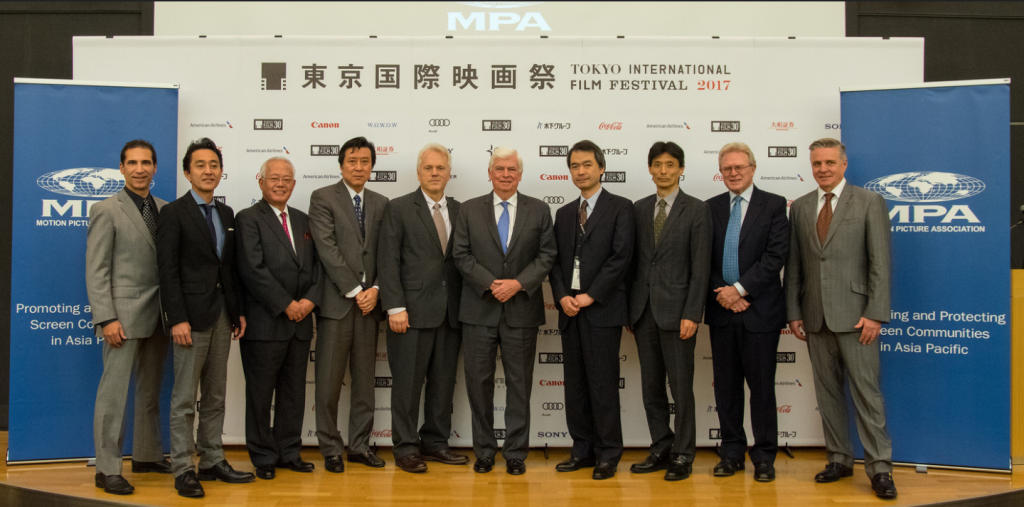Collaboration the key to both growing and protecting the film industry in Japan
Last week, I had the privilege of returning to Tokyo for the 30thTokyo International Film Festival and the 7th Annual MPA Seminar for global stakeholders committed to improving copyright. As with other trips to this world-renowned Film Festival, this most recent visit was extremely productive.
The Seminar began with the MPA providing an assessment of the current state of the local film and television industry, including an analysis of online piracy across Japan.
According to research released during the Seminar, in Japan alone, one in four (24 percent) of internet users accessed sites or applications used for online piracy via desktops on average per month in the first half of 2017[1]. Astonishingly, the report found that there were 7.7 billion total visits to unlicensed anime video sites globally in 2015.[2]
The Seminar then focused on identifying new collaborative ways to protect the valuable work of filmmakers not only in Japan, but all around the world.
This work matters because as our world becomes increasingly connected, the film community has necessarily become an international one, both in terms of creative collaboration and commercial concerns. Today, online piracy is a global issue impacting film industries in every region of the globe.
Fortunately, there are now a number of successful initiatives that are proving to reduce content theft. Throughout the Seminar and other various meetings with the Japanese Government and local film industry, the importance of working together was an important underlying theme. In fact, the Seminar proved to be a perfect platform for experts, including Hugh Stephens, a copyright specialist based in Canada, to elucidate that notion.
I’m happy to say that our partnerships in Japan, with organizations such as the Content Overseas Distribution Association, whose mantra it is to protect Japanese creative content around the globe, are stronger than ever.
Local coalitions, involving a wide range of companies and associations in the film, television, music, publishing, advertising, telecommunications sectors, and supported by government, are well placed to make progress on promoting and protecting the creative industries.
So while the challenges remain pressing, our ability to meet them in union gives us confidence that we will prevail.
What’s more, our partnerships with international film communities, including Japan’s, are responsible for bringing global audiences rich content and great stories.
At this year’s Seminar, I was also joined by TIFF programmer and producer, Yoshi Yatabe, who will become a member of the International Jury at the 11th Asia Pacific Screen Awards in Brisbane this November.
Together, we announced this year’s selection panelists for the MPA APSA Academy Film Fund – Andrew Pike from Australia, Tannishtha Chatterjee from India and Alexandra Sun from Japan. They bear the important responsibility of choosing this year’s four recipients of the $25,000 grants provided by the Film Fund to filmmakers proposing fresh and original film projects from every corner of the Asia Pacific region.
In this way, our cinema will become richer, our audiences more deeply engaged, and our experiences of different cultures and lives, broadened and understood.
[1] Custom analysis of comScore data
[2] Excluding China, Japan and Korea. MUSO’s Global Film & TV Piracy Insights Report 2016

